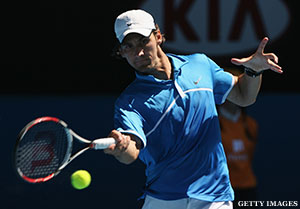All-Pro linebacker Ray Lewis raised some eyebrows recently when he said a prolonged NFL lockout would lead to higher crime. But another sports stoppage may have an even bigger impact.

And this crisis, unlike the NFL lockout, could go on for years.
High school sports in the U.S. appear to be at a crossroads. Stop-gap efforts, such as pay-to-play, have allowed many sports to continue in recent years. But now -- with budget shortfalls becoming the norm -- sports themselves are on the chopping block.
The latest example is in Jacksonville, where a $90 million deficit has forced Duval County athletic director Jon Fox to propose cutting several sports altogether. More than 2,000 kids could be affected if the measure passes in a vote June 13.
"With public education, you are mandated to do certain things," Fox says. "Athletics is not one of those things."
That has some pros quite upset.
"There are good ideas, bad ideas, and really bad ideas," says MaliVai Washington, one of only two male African-American tennis players to reach a grand slam final. "This is a really bad idea."
The potential solution in Jacksonville could change the face of high school sports everywhere. With no money to be found -- and no more coming from strapped state governments -- Fox is reaching out to the community to raise the funds needed to continue.
Many pro athletes are hearing the call.
Washington is one of several pros -- both active and retired -- who are trying to rally Jacksonville citizens to show up at a city council vote next week. Current ATP player Amer Delic wrote a letter to Duval County in support of high school tennis, as did former star Todd Martin. Both have strong ties to the Jacksonville area.
"To take away sports from kids, you're literally affecting their future," says Washington, who works extensively with Jacksonville inner-city youth. "You're giving kids a lot of extra time to get involved in a whole other set of activities."
That's the point Ray Lewis was trying to make, although in this case, there are facts behind the argument. Sports participation in high school is tied to everything from higher GPAs to lower dropout rates to reduced anxiety.
"Kids, when they have time on their hands, they usually don’t pick up a book," says Washington. "I think this is going to have a direct impact on juvenile delinquency, on the criminal justice system. The short and long term negative effects far exceed the benefit from cutting these sports.”
So what's the solution? The pros might be part of that too.

Members of the Jacksonville sports community have come together to offer money to keep some of the smaller sports alive this fall. The First Tee, for example, has donated thousands to Duval County schools on behalf of its parent organization, the PGA Tour.
"I've met with leaders of the golf community, as well as tennis, cross country and lacrosse," Fox told the Florida Times-Union. "I'm very optimistic after these meetings that all four of these sports will be saved."
That's great news, but there could be a bad side effect: Communities around the nation will be watching what Jacksonville does in this situation. If one school district relies on private funding and gets by, others will try to do the same. That might work in richer areas and bigger cities, but what happens in poor places that have no corporations and no famous athletes living nearby? And if poor or rural students can't play sports, how will they get college scholarship offers?
Jacksonville's generous community might only be a short-term benefit anyway. Asking any athlete or company to carve out an annual portion of a budget for high school sports is asking a lot.
"I don’t think sponsoring a high school team will be part of a long-term strategy for any company," Washington says. "It may be a short-term partial solution at best."
Fox agrees.
"Unless some things do turnaround," he says, "we'll be back in this situation next year -- if there’s anything left."




